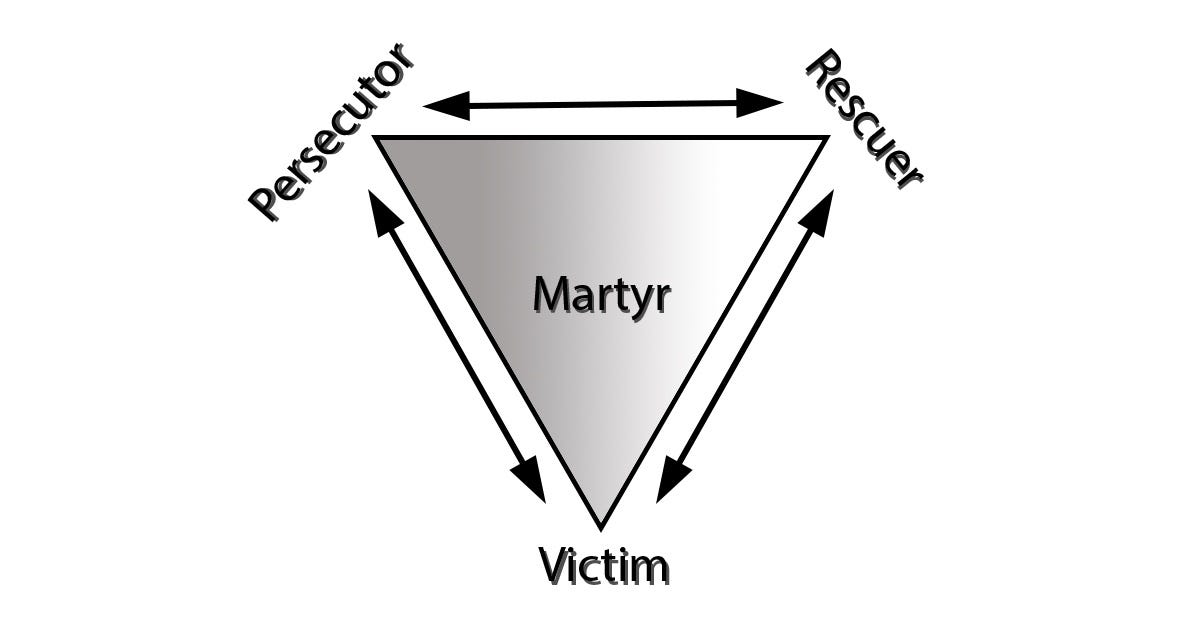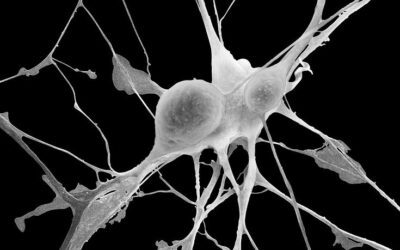
A Comprehensive Guide for Therapists and Clients to The Karpman Drama Triangle
The Karpman Drama Triangle, developed by psychologist Stephen Karpman, is a powerful tool used by psychologists, therapists, and counselors in various settings, including individual therapy, marriage counseling, couples therapy, family therapy, and group therapy. This model helps clients understand and break free from dysfunctional relationship dynamics that often contribute to mental health issues such as anxiety, depression, trauma, PTSD, ADHD, eating disorders, and more.
Understanding the Roles in the Drama Triangle
The triangle consists of three roles:
- Victim: Feels helpless, oppressed, and stuck. May struggle with intrusive thoughts, OCD, emotional invalidation.
- Rescuer: Enables the Victim’s negative behavior. May struggle with anger management, assertiveness, identity issues.
- Persecutor: Blames and criticizes. May exhibit narcissistic abuse, emotional abuse, gaslighting.
In relationships characterized by the pursuer-withdrawer dynamic, negative sentiment override, and the DARVO response, individuals often rotate between these roles, perpetuating a cycle of dysfunction.
Therapeutic Approaches for Breaking Free
Psychologists and therapists employ various evidence-based therapeutic modalities to help clients break free from the Drama Triangle:
- Cognitive Behavioral Therapy (CBT): Identifies and challenges unhelpful thoughts and beliefs.
- EMDR (Eye Movement Desensitization & Reprocessing): Processes traumatic memories and experiences.
- Brainspotting: Targets and releases trauma held in the body’s subcortical regions.
- Play Therapy: Helps children process emotions and experiences through play.
- Emotionally Focused Therapy (EFT): Strengthens attachment bonds in couples and families.
- Psychobiological Approach to Couples Therapy (PACT): Addresses relationship issues through a neurobiological lens.
- Sex Therapy: Addresses sexual dysfunction, addiction, and intimacy issues.
- Trauma-Informed Therapy: Recognizes the impact of trauma on mental health and relationships.
Alternative therapeutic approaches like equine therapy, art therapy, meditation, and mindfulness can also be incorporated to support healing and growth.
Addressing Specific Issues and Populations
The Drama Triangle manifests differently depending on the specific issues and populations involved:
- Men’s Issues: Suppressed anger, emotional invalidation, identity issues.
- Women’s Issues: Betrayal trauma, post-wedding depression, sexual wholeness.
- Veteran Therapy: Trauma, PTSD, anger management, relationship issues.
- Teenage Therapy: Identity issues, family dynamics, assertiveness.
- Blended Family Counseling: Role confusion, assertiveness, communication.
- Infidelity and Betrayal Trauma: Partner trauma, attachment injuries, rebuilding trust.
- Borderline Personality Disorder: Emotional dysregulation, unstable relationships, fear of abandonment.
- Chronic Pain as Trauma Response: Neurobiological impact of trauma on pain perception.
By understanding these specific manifestations, therapists can tailor their interventions to best support their clients’ unique needs.
You’re Not Alone
If you find yourself caught in the Karpman Drama Triangle, know that help is available. Psychologists, therapists, and counselors are trained to support you in breaking free from these patterns and building healthier, more fulfilling relationships. Don’t hesitate to reach out and start your journey of healing today.


























0 Comments